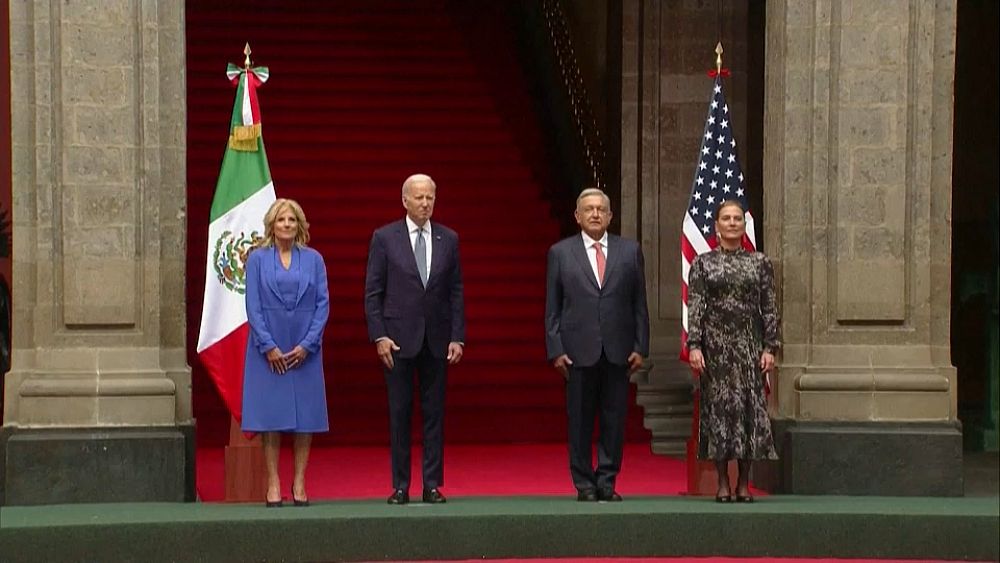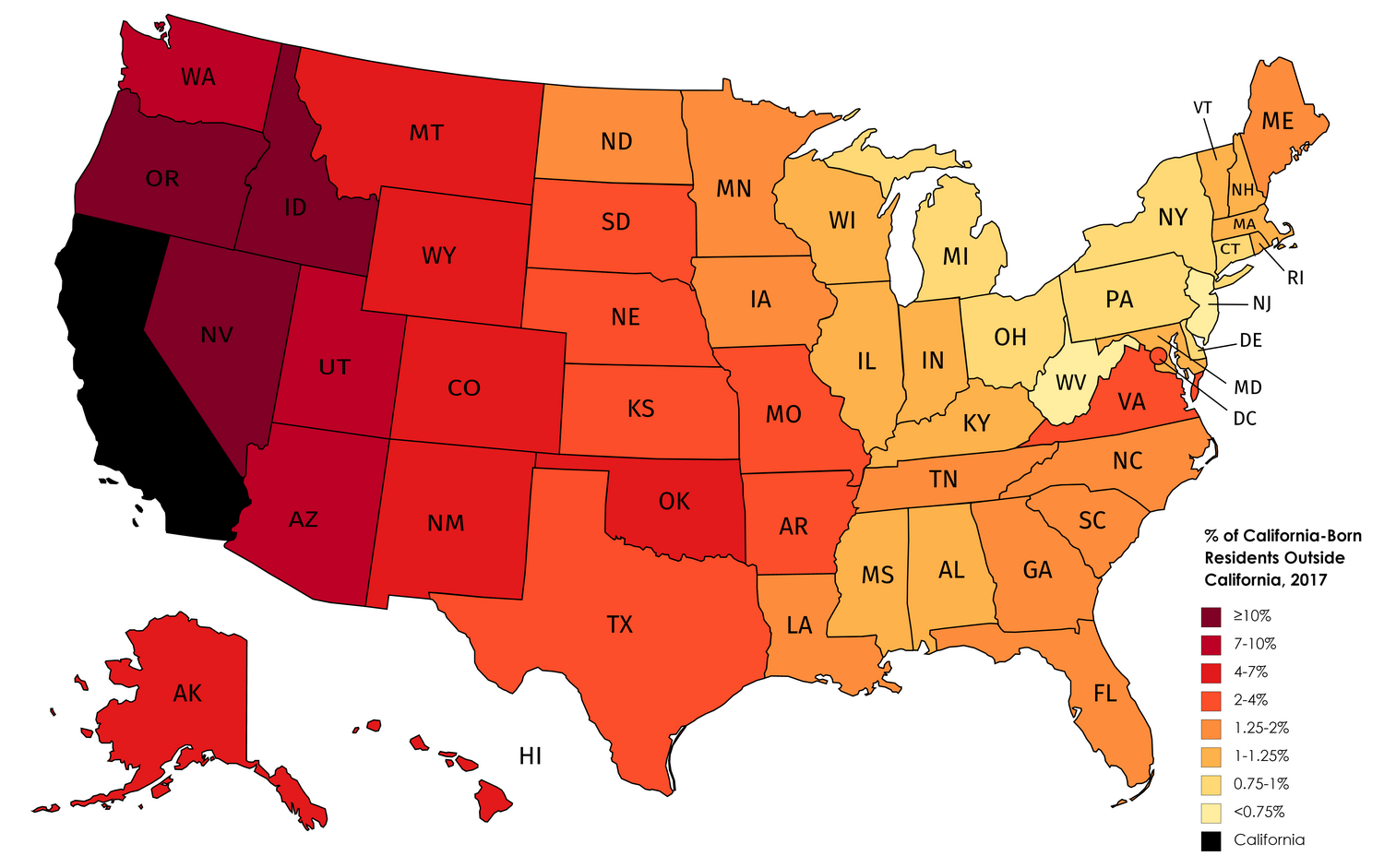Strengthening Canada-Mexico Trade Relations In The Face Of US Protectionism

Table of Contents
Diversifying Trade Partners and Markets
Reducing reliance on the US market is paramount for strengthening Canada-Mexico trade relations. Over-dependence on a single major trading partner leaves both nations vulnerable to shifts in US policy. Diversification into new markets offers a crucial buffer against such instability and opens doors to unprecedented growth opportunities.
Opportunities for increased trade abound in other Latin American countries and across Asia. These regions present diverse market demands and offer potential for significant economic expansion.
-
Identifying Potential Trading Partners: Countries like Brazil, Colombia, Peru in Latin America, and several nations in Southeast Asia offer promising markets for Canadian and Mexican goods and services. Thorough market research, identifying specific product demands and consumer preferences, is crucial for successful market penetration.
-
Establishing New Trade Routes and Agreements: Negotiating new bilateral and multilateral trade agreements with these nations is essential. This includes streamlining customs procedures, reducing bureaucratic hurdles, and establishing efficient transportation networks.
-
Mitigating Risks: Diversification significantly reduces the risk associated with US protectionism. A diversified trade portfolio ensures that economic shocks in one market have a less severe impact on the overall economy.
-
Government Support: Both Canadian and Mexican governments play a vital role in supporting diversification efforts. This includes providing financial incentives, export promotion programs, and facilitating access to information and resources for businesses.
Enhancing Bilateral Trade Agreements
The Canada-Mexico-United States Agreement (CUSMA) forms the bedrock of trilateral trade. However, strengthening Canada-Mexico trade relations requires identifying areas within CUSMA for improvement and exploring opportunities for new, specialized bilateral agreements.
-
Tariff Simplification and Reduction: Analyzing existing tariff structures and identifying areas for simplification or reduction can significantly boost trade volumes. Focusing on eliminating unnecessary tariffs and harmonizing regulations can create a more seamless trading environment.
-
Regulatory Cooperation and Mutual Recognition: Enhanced regulatory cooperation and mutual recognition agreements can reduce compliance costs and facilitate the cross-border movement of goods and services. This includes aligning standards and certifications to minimize bureaucratic hurdles.
-
Addressing Non-Tariff Barriers: Non-tariff barriers such as sanitary and phytosanitary regulations, technical barriers to trade, and cumbersome customs procedures significantly impede trade flows. Addressing these barriers through collaborative efforts is crucial.
-
Aligning Standards and Regulations: Harmonizing standards and regulations in key sectors will further facilitate trade and investment. This can improve interoperability and reduce compliance costs for businesses.
Investing in Infrastructure and Supply Chain Resilience
Modernizing infrastructure is essential for efficient cross-border trade between Canada and Mexico. A robust and reliable infrastructure network is the backbone of a thriving trade relationship.
Strengthening supply chain resilience is crucial in mitigating future disruptions. Diversifying supply chains and reducing reliance on single sources of goods are critical elements of this strategy.
-
Key Infrastructure Projects: Investing in border crossings, transportation networks (roads, railways, ports), and digital infrastructure (e.g., customs systems) is paramount. These improvements will streamline the flow of goods and reduce transit times.
-
Technological Advancements: Embracing technological advancements, such as blockchain technology for improved supply chain transparency and traceability, can significantly enhance efficiency and reduce vulnerabilities.
-
Diversifying Supply Chains: Businesses should proactively diversify their supply chains to mitigate risks associated with geopolitical instability or natural disasters. This includes sourcing materials and components from multiple suppliers in different regions.
-
Public-Private Collaboration: Government investment in infrastructure, coupled with active participation from the private sector, is necessary to create a more resilient and efficient trade ecosystem.
Fostering Innovation and Collaboration
Joint research and development initiatives are key to promoting innovation in key sectors, from technology and renewable energy to agriculture and advanced manufacturing.
Collaborative projects and knowledge-sharing platforms can accelerate innovation and create new opportunities for both countries.
-
Promising Areas for Collaboration: Identifying and focusing on areas of mutual strength, such as clean technology, biotechnology, and aerospace, can yield significant benefits.
-
Supporting Joint Ventures: Establishing mechanisms for supporting joint ventures, technology transfer, and intellectual property protection will foster innovation and collaboration.
-
Vibrant Entrepreneurial Ecosystem: Fostering a vibrant entrepreneurial ecosystem through incubator programs and access to venture capital can help drive innovation and create new business opportunities.
-
Attracting Foreign Direct Investment: Joint efforts to attract foreign direct investment in key sectors can further boost economic growth and innovation.
A Stronger Future Through Enhanced Canada-Mexico Trade Relations
Strengthening Canada-Mexico trade relations requires a multifaceted approach. Diversifying trade partners, enhancing bilateral agreements, investing in infrastructure, and fostering innovation are all critical components of building a more resilient and prosperous economic partnership. Proactive measures to mitigate the impact of US protectionism are essential for ensuring the long-term health of this vital bilateral relationship. The economic benefits of a robust Canada-Mexico trade relationship are substantial and far-reaching.
We urge you to learn more about government initiatives and private sector collaborations focused on improving Canada-Mexico trade. Your engagement in promoting a more resilient and diversified trade partnership is crucial for securing a stronger future for both nations. Let's work together to strengthen Canada-Mexico trade relations.

Featured Posts
-
 Nora Fatehi At Iifa 2025 A Glamorous Alexandre Vauthier Ensemble
May 27, 2025
Nora Fatehi At Iifa 2025 A Glamorous Alexandre Vauthier Ensemble
May 27, 2025 -
 Atlanta Educator Ron Clarks Survivor Party A School Wide Celebration
May 27, 2025
Atlanta Educator Ron Clarks Survivor Party A School Wide Celebration
May 27, 2025 -
 Californias Population The Role Of Immigration
May 27, 2025
Californias Population The Role Of Immigration
May 27, 2025 -
 Complete Ncaa March Madness Music Festival Lineup Dates Times And Artists
May 27, 2025
Complete Ncaa March Madness Music Festival Lineup Dates Times And Artists
May 27, 2025 -
 Spasenie Zhizney V Ukraine Rol Germanii Po Slovam Andreya Sibigi Unian
May 27, 2025
Spasenie Zhizney V Ukraine Rol Germanii Po Slovam Andreya Sibigi Unian
May 27, 2025
Latest Posts
-
 Garteig Wechselt Von Ingolstadt Nach Augsburg Bayern Liga Im Fokus
May 30, 2025
Garteig Wechselt Von Ingolstadt Nach Augsburg Bayern Liga Im Fokus
May 30, 2025 -
 Bayern Festnahme Wegen Marihuana Verkaufs Aus Automatenkiosk
May 30, 2025
Bayern Festnahme Wegen Marihuana Verkaufs Aus Automatenkiosk
May 30, 2025 -
 Sport Und Identitaet Die Rueckkehr Juedischer Athleten Nach Augsburg
May 30, 2025
Sport Und Identitaet Die Rueckkehr Juedischer Athleten Nach Augsburg
May 30, 2025 -
 Automatenkiosk In Bayern Frau Verkauft Illegal Marihuana
May 30, 2025
Automatenkiosk In Bayern Frau Verkauft Illegal Marihuana
May 30, 2025 -
 Zurueck In Augsburg Die Geschichte Juedischen Sports
May 30, 2025
Zurueck In Augsburg Die Geschichte Juedischen Sports
May 30, 2025
